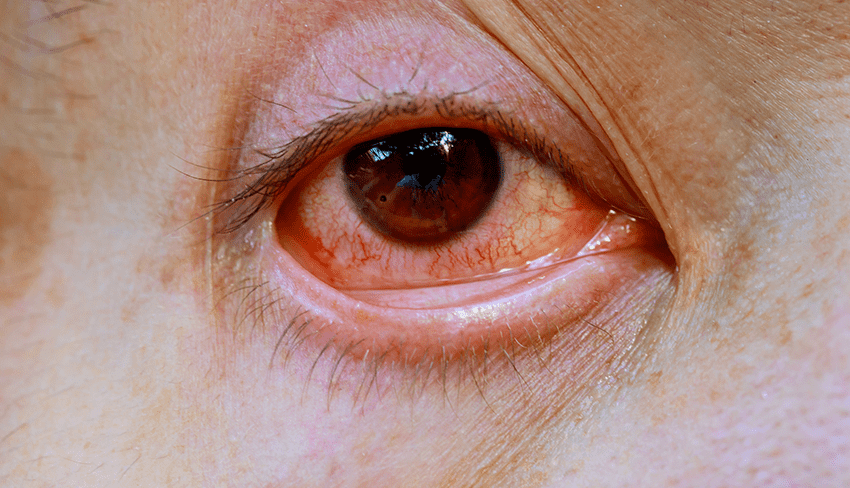What Causes Eye Allergies?
Eye allergies are caused by the same irritants that cause sneezing, runny nose, and other symptoms. An allergic reaction causes your eyes to overreact to a substance that is perceived as harmful and result in red, watery, itchy eyes. Most people are allergic to dust, and their eyes react by excessive production of tears and mucus. That is harmless to the other individuals. Eye allergies also can be caused by cosmetics or eye drops used to treat dry eyes. Some people are allergic to preservatives, so you might consider using preservative-free products. Airborne allergens mainly cause eye allergies. Other causes, like food allergies, typically do not affect the eyes. Besides this, allergies might cause other problems like conjunctivitis and asthma. Symptoms of allergies are easy to identify most of the time. Red, watery or itchy eyes, runny nose, headache are the most common signs of allergies.
Allergic is the overreaction of your immunity system to foreign substances that are often detected as harmful to the body. These reactions usually occur when the allergens come in contact with the antibodies in the mast cells of your eyes.
When the contact occurs, chemical substances, including histamine, are released by these cells, causing tiny blood vessels to leak and thereby making your eyes red and irritated.

What Are The Different Eye Allergies?
Eye allergies can be categorized according to frequency, season, substance, and severity. Some of them are;
Atopic conjunctivitis
This is referred to as the most common type of allergic condition. The problem is hypersensitivity to airborne pollutants such as dust, animal dander, mites, pollen grains, mold spores, etc.
Seasonal allergic conjunctivitis
Perennial allergic conjunctivitis
The condition is linked with dry eye symptoms and is encountered mostly with middle-aged people. The type can occur whole year-round, and the affected individuals may have prominent dark circles under their eyes.
Vernal keratoconjunctivitis
Although the infection is considered rare, the outcomes can be severe if encountered as it can lead to corneal complications. The allergy usually occurs in warmer climates and primarily affects children and young adults. Foreign body sensation, severe itching, photophobia, thick mucus, cyst in the upper eyelids are a few symptoms of this condition.
Atopic Keratoconjunctivitis
The allergic condition accompanies eczema (skin rash), allergic rhinitis, or asthma. The infection needs to be treated under a doctor’s consultation with its possibilities to threaten your eyesight. Inflammation, itching, and redness of the eye can be seen with eczema on eyelids.
Contact allergy hypersensitivity
This can be seen in people who wear contact lenses for refractive error corrections or cosmetic purposes. The sensitivity is caused by the repeated micro-traumas of the cornea (front transparent layer of the eye). Symptoms include redness, itching, mucus production, and significant discomfort on wearing lenses.
Contact blepharoconjunctivitis
Natural resin in cosmetics, mascara, or components of eye medicines might cause hypersensitivity. The contact with these substances leads to toxic damage to the eye surface. Preservative-free artificial tears are required here to treat the condition.
Delayed allergy
Airborne pollutants are produced due to vaporization from rubber or composite compounds. Certain plants in warm climates can also release these, especially in greenhouses. The chemicals cause delayed allergies to arise, causing eye irritation and inflammation.
How Your Doctor Can Diagnose Allergic Conjunctivitis?
Allergic skin test
Here, your skin will be exposed to the allergens to examine the body reaction.
Blood test
This will evaluate the antibody production to protect your body from allergic conditions.
Laboratory test
Your conjunctive tissue will be scrapped to get samples and identify your white blood cells.
In order to avoid an allergic reaction, you need to avoid sources of it. If you are allergic to dust, keep your home free from dust and dander. If your allergy symptoms are mild, you can consider using non-prescription eye drops that relieve itchiness and redness. If your allergy symptoms are severe and non-prescription eye drops don’t help you, or you are not sure what you are allergic to or can’t avoid the sources of it, you should visit a doctor as you might need stronger medications. Visit Spanish Eye Clinic to get proper treatment. Spanish Eye Clinic is a reliable eye clinic in Dubai, offering quality services and effective solutions to any eye-related problem. We have a team of experienced and ighly skilled ophthalmologists in Dubai who will help you identify the reason for your allergic reaction and offer the right prescription eye drops or oral medications to relieve eye allergies.
FAQs
Can eye allergies cause blurry vision?
Yes, eye allergies can sometimes cause temporary blurry vision due to excessive tearing, inflammation, and mucus buildup. However, if blurry vision persists or worsens, it’s essential to consult an eye specialist to rule out other underlying conditions.
How can I differentiate between eye allergies and an eye infection?
Eye allergies typically cause redness, itching, and watery eyes but do not produce thick discharge or significant pain. In contrast, eye infections may lead to yellow or green discharge, swelling, and discomfort. If you experience persistent symptoms, visit an eye doctor for an accurate diagnosis.
Can wearing contact lenses worsen eye allergies?
Yes, contact lenses can trap allergens like pollen and dust, worsening eye allergy symptoms. If you experience discomfort, consider switching to glasses during allergy flare-ups or using daily disposable lenses. You may also benefit from preservative-free artificial tears to reduce irritation.
Conclusion
Eye allergies can cause significant discomfort, but with proper management and preventive measures, symptoms can be effectively controlled. Identifying triggers, maintaining good eye hygiene, and using appropriate treatments like allergy-friendly eye drops can help alleviate irritation.
If symptoms persist or worsen, consulting an eye specialist is essential for accurate diagnosis and personalized treatment. Prioritizing eye health ensures better comfort and long-term protection against allergy-related complications.
Need Emergency Assistance?
All patients with emergency needs will be seen on the same day.










